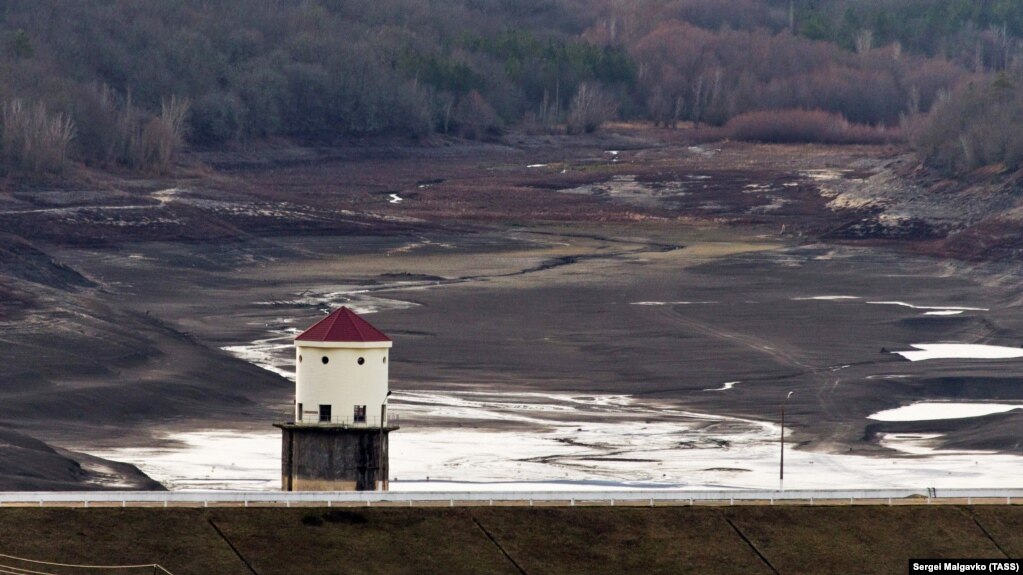Many recent films have been devoted to Crimea. This one is different by having support from the Ministry of Information of Ukraine. So at its screening many officials were present, including president Petro Poroshenko.
The central figure of the 23-minute film is the US historian James Austin Charon, who has visited Crimea at the beginning of Russia’s occupation of the peninsula in spring 2014. He points out that what happened on the peninsula is not only a Ukrainian problem. “The disaster is at our [Western countries] doorstep,” says James.
The story starts from the pro-Ukrainian meeting near The Supreme Council of Crimea on 26 February 2014 and ends with repressions against the pro-Ukrainian population of the peninsula conducted by the Russian authorities nowadays.
Out of 10 filmmakers, only scriptwriter and director Emine Dzheppar showed up at the presentation. She explains that others can’t go public for security reasons. She says that for her this film is about Ukrainian Crimea and for the fight for Ukrainian Crimea.
President Poroshenko speaks after Emine. He reminded the audience that he had initiated changes to the Ukrainian Constitution regarding the right of the Crimean Tatars to self-determination on their native land, Crimea, and now hopes for the support of the Parliament and Ukrainian society. “We have to provide Crimean Tatars with a right for self-identification within the united Ukrainian state. It is something that we owe to the Crimean Tatars. Ukrainian authorities should have done this 20 years ago, so we would not have the situation we have now,” said Poroshenko. Also, the President honored the director Oleg Sentsov: “His only fault is that he did not give up Ukrainian passport. He has not committed any other crimes from the viewpoint of the Russian Federation.”
Among other guests are also the Eurovision 2016 winner Jamala, Crimean Tatar politicians Mustafa Dzhemilev and Refat Chubarov, who also appeared as characters in the film.
When talking to the audience, Chubarov said that he was implementing the will of Crimeans living in Crimea.
“They asked to tell you that they are waiting for systematic, clear, and, to the extent possible, open steps of Ukrainian state towards returning Crimea. We call it a strategy. I want people here tha soon Ukraine will release this strategy.”
He also spoke about the recent good job of Ukrainian delegation abroad. In particular, at the Parliamentary Assembly of the OSCE which was followed by a strict resolution, and agreements at the NATO summit in Warsaw.
“I am satisfied with the movie. They included everything which could be addressed in such a short duration. If I could add something, I would go deeper into the current situation with arrests [of people in Crimea]. It is a key question which disturbs many people now. Unfortunately, I think the situation will aggravate,” said Elvin, a Crimean Tatar.
“Little was said about the Russian aggression in the movie. Everything is much serious and harder,” Viktor, one of the Ukrainian Army soldiers who was invited to the screening, said.
Indeed, the film focuses on Crimean Tatars, which are only one aspect of the situation in Crimea. However, both in the movie and in real life, Crimean Tatars are those who exert the largest efforts to keep the question on the agenda.
You can watch the video in English below:



